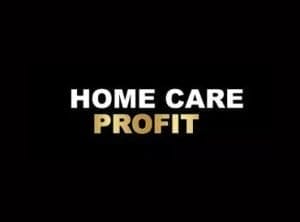Few home care leaders entered 2022 with as much optimism as they did in 2021. Record-high absenteeism in December and January left most of us with little time to reflect on how we did last year and how we hope to improve this year. But even as we approach spring, there’s still time to take stock of how your business – and the home care industry in general – fared in 2021. And to use that information to improve your operations going forward.
What did the home care industry in the United States look like in numbers last year? And how can technology help us adapt to these changes?
- The pool of available caregivers shrunk dramatically, accelerated by pandemic job loss.
High caregiver turnover is anything but news. But typically, when we talk about employee turnover, we’re referring to staff who leave your agency for a different one that might provide more hours, higher pay, more flexibility or a more convenient location. Last year’s story was a bit different.
According to PHI National, a not-for-profit organization that advocates for support for the elderly and individuals with disabilities, of the 168 370 direct care workers (including home care, residential care aides and nursing assistants), just 9% or 14 760 returned to the direct care field in 2021.
Home care agencies aren’t just competing with each other for the same caregivers – they’re now up against the entire labor industry. How can your agency gain an edge?
- Go virtual first in interviews. The group interview era is already all but dead. And the in-person screening interview is close behind. While caregiving is an in-person job, you can still shift as many stages of the hiring process to virtual as possible to offer more convenience and flexibility to candidates.
- Offer cell phone benefit plans. Agencies can’t compete on culture alone. It’s time to get serious about your employee perks. Offering a mobile phone plan can benefit your employees and your organization. If you’re offering a caregiver mobile app (and you should be!), a phone plan will increase your oversight into security while providing your employees with savings on a hefty monthly bill! Win-win.
- Demand for home care far exceeds the capacity of providers.
16.5% of the United States’ population is 65 or over. And by 2030, 31% of the population will reach retirement age.
Anyone in the home care industry for a while knows demand for services is growing with no sign of slowing down. But doubling over the next ten years? Agencies who want to keep and grow their piece of this expanding market will need to evaluate how they optimize operations. And especially so when you consider the significant number of people on Medicaid waitlists (800 000 and counting) who will likely turn to the private duty market to get care.
Here are some ways you can get ready:
- Caregiver-client matching. Although this is intuitive, your visit hours likely echo that your staff work more efficiently with clients they know better. Ensure you’re keeping track of working relationships between caregivers and clients so you can easily assign the most effective team member to each visit.
- Outsource, outsource, outsource. Your back-office team works hard. Help them work smarter by outsourcing whatever you can – to your technology. If you have home care software in place, are you using all its features? Most home care managers use their scheduling function effectively but don’t fully leverage client management or reporting features. Schedule a check-in call with your provider to see how you can make better use of the platform you’re already paying for.
A $150 billion investment into home-based care services is being negotiated in Congress. It’s aimed at reducing wait-list time and boosting caregiver pay.
The Build Back Better bill is still going through intense debate in Congress. And while it’s been subject to significant change – the support for better in-home care seems to be widely accepted on all sides for now.
Home care industry veterans have always known the value of the service we provide. It’s affirming to see it finally being recognized by the government. Offering higher pay to caregivers will help agencies hire and train high-quality caregivers. And it also changes the playing field for how agencies differentiate themselves in a crowded hiring marketplace. How else can you position your organization as a great place to work?
- Build your online brand. Most clients look at your website or Facebook page before calling you. Employees also do their research before their interviews. Do you have a Careers page on your website? If not, it’s time to add one. Use this space to talk about your benefits, post employee testimonials and share your story.
- Offer a caregiver mobile app. If your home care software platform doesn’t offer one, it’s time to switch providers. Caregiver mobile apps enhance back-office efficiency and boost caregiver satisfaction by reducing administrative friction in their jobs. From getting paid more accurately thanks to mobile clock-in & out, to minimizing paperwork, to getting all the information they need at a glance – mobile caregiver apps make your team’s life a little easier.
The key to better operations in the future: technology
Agency owners are in a tricky spot. You want high demand for your services, but you need to handle your new clients’ intake, caregiving, and billing. And – of course, you want to offer higher pay to your caregivers – but then you’ll need to consider other differentiation tactics. It can be overwhelming.
Many small and medium-sized private duty agency owners already spend most of their day on administrative work. Scheduling takes a few hours per day between calling caregivers to clock them in and out, adjusting hours, switching shifts and managing shift offers. Payroll can be a whole day affair. The prospect of adding even more managerial work to your plate is unappealing.
And until you can clone yourself, where should busy but thoughtful home care leaders start? Technology.
And we don’t mean you need to buy a complex, expensive platform that requires six months of training. Founded by an agency owner, FirstVisit is a home care software platform for small-to-medium-sized private duty organizations. The user-friendly and cost-effective platform enables our users to focus on their operations by minimizing administrative complexity.
If you’re a small to medium-sized agency leader looking to use technology to increase efficiency, we’d love to talk about how we can help. Or if you’re an existing customer who wants to learn more about how we can make your life even easier, let’s talk! Get in touch with our team to learn more.

FirstVisit wrote this blog in conjunction with Home Care Profit. Home Care Profit is a group run by Darnell Reid geared towards entrepreneurs who want to learn how to start, grow and profit in the home care industry. He’s an experienced home care agency owner helping entrepreneurs all across the US through posts, webinars, and discussions on his Facebook group as well as his podcast, The Home Care Insiders Secrets.



